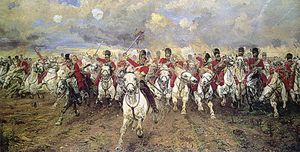Search Results for 'Irish National Land League'
17 results found.
A different type of politics was needed
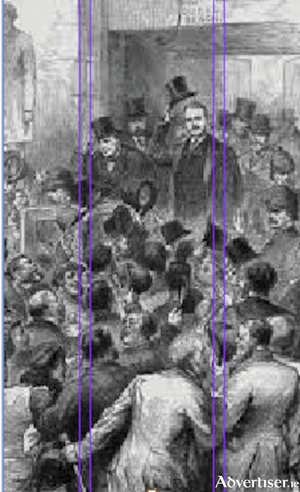
When Mitchell Henry entered Westminster parliament in 1871 he went with hope in his heart and a mission to tell the British people the precarious circumstances of the Irish tenant farmer. In many ways he resembled Jefferson Smith in the Frank Cappa film ‘Mr Smith Goes to Washington’ where a naive, idealistic young man has plans to change America.* Mitchell Henry, a liberal, kindly man, had plans to be a voice for the Irish tenant farmer within, what he believed, was a paternalistic landlord system, but he walked into a political cauldron, waiting to explode.
Mayo will be first 'Eviction Free County', says campaigner
A group of anti-eviction campaigners who were formerly part of Land League West say they now plan to open a drop-in centre in Castlebar to help families facing the loss of their homes.
Michael Davitt’s Glasgow Celtic links celebrated in Straide
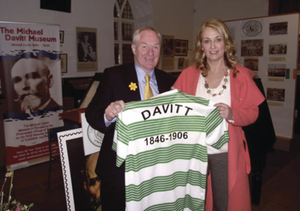
A new exhibition celebrating the historic links between one of Mayo’s greatest patriots, Michael Davitt, and the Scottish football club, Glasgow Celtic, was officially opened at the Michael Davitt Museum in Straide last Friday.
Land League group to protest in Castlebar on Monday
Land League West, a group formed to oppose the repossession of family homes and farms and to support individuals facing the loss of their home, is to stage a demonstration outside Castlebar Courthouse on Monday.
The gathering storm
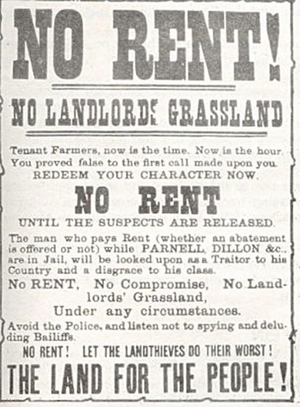
The threat of another famine in 1879, within living memory of the horror and catastrophe of the Great Famine some 29 years earlier, brought renewed terror to the vulnerable tenant farmers in the west of Ireland. This time it was not just the humble potato, but severe weather conditions which devastated crops and feed stuffs over a three year period. Farm incomes dropped dramatically, landlords fussed that rents would not be paid. Whereas some landlords were patient, others warned that evictions would follow if rents were not paid on time.
The Land War: A desperate duel between Parnell and Forster
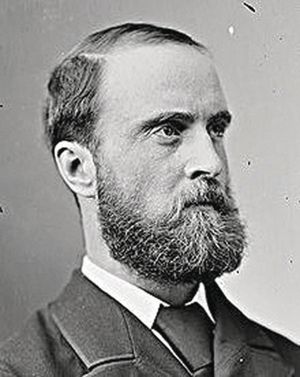
The continued unrest, murders, and large-scale protests as the Land War careered dangerously through the Irish countryside, led at last to some reform. William Gladstone’s Second Land Act of 1881 proposed broad concessions to the tenant farmer. But Parnell, the very effective leader of the Irish Parliamentary Party, was not satisfied. He said that tenants were still vulnerable to rent arrears and poverty resulting from poor harvests. He urged that the Act either accommodate these concerns, or be rejected.
A royal visitor in ‘Pollok’s Time’
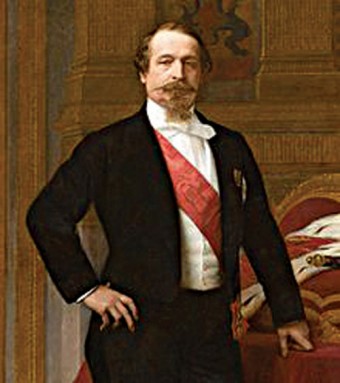
Earlier this year Galway Diary discussed the evictions implemented by Marcella Netterville and John Gerrard on their 7,000 acre estate at Ballinlass, near Mount Bellew Co Galway. In 1846 more that 400 families were heartlessly thrown out on the road, without any compensation. The land was being cleared to fatten cattle, which would have been far more profitable than tenants; many of whom, as the Great Famine tightened its terrible grip, were unable to pay their way. The Times of London famously commented that the Ballinlass evictions showed ‘the sublime indifference to social considerations of which no one but an Irish landowner is capable.’
The case of the Craughwell Prisoners
In the 1880s the Land War was at its height. It was a prolonged period of bitter civic unrest which pitted an unprotected peasantry against some ruthless landlords, who had the law and power of eviction at their disposal. Following the Great Famine a weakened tenant peasantry was easily removed from the land. It began a pitiful trail to the workhouse, and the emigrant ships. But as the century progressed the situation changed. The highly organised Irish National Land League supported evicted farmers; while members of the Irish Parliamentary Party in Westminster fought for legislation which would eventually see a redistribution of land to tenants.
Fear and loathing in east Galway
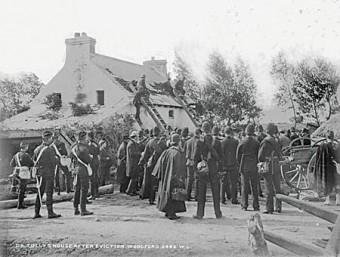
Following the extensive publicity and extraordinary use of more than 700 military, police, emergency men and bailiffs, to evict five families from the marquis of Clanricarde’s estate, the people of Woodford and all of east Galway were in a state of shock, anger and fear. It was now clear that Clanricarde would use every method within his considerable powers to evict any of his tenants who refused to pay their rent. Despite pleas for a rent reduction because of successive bad weather, he refused to even consider it. He scoffed at John Dillon’s Plan of Campaign, supported by the Land League, which urged tenants to stick together, and to refuse to pay unreasonable rent.
